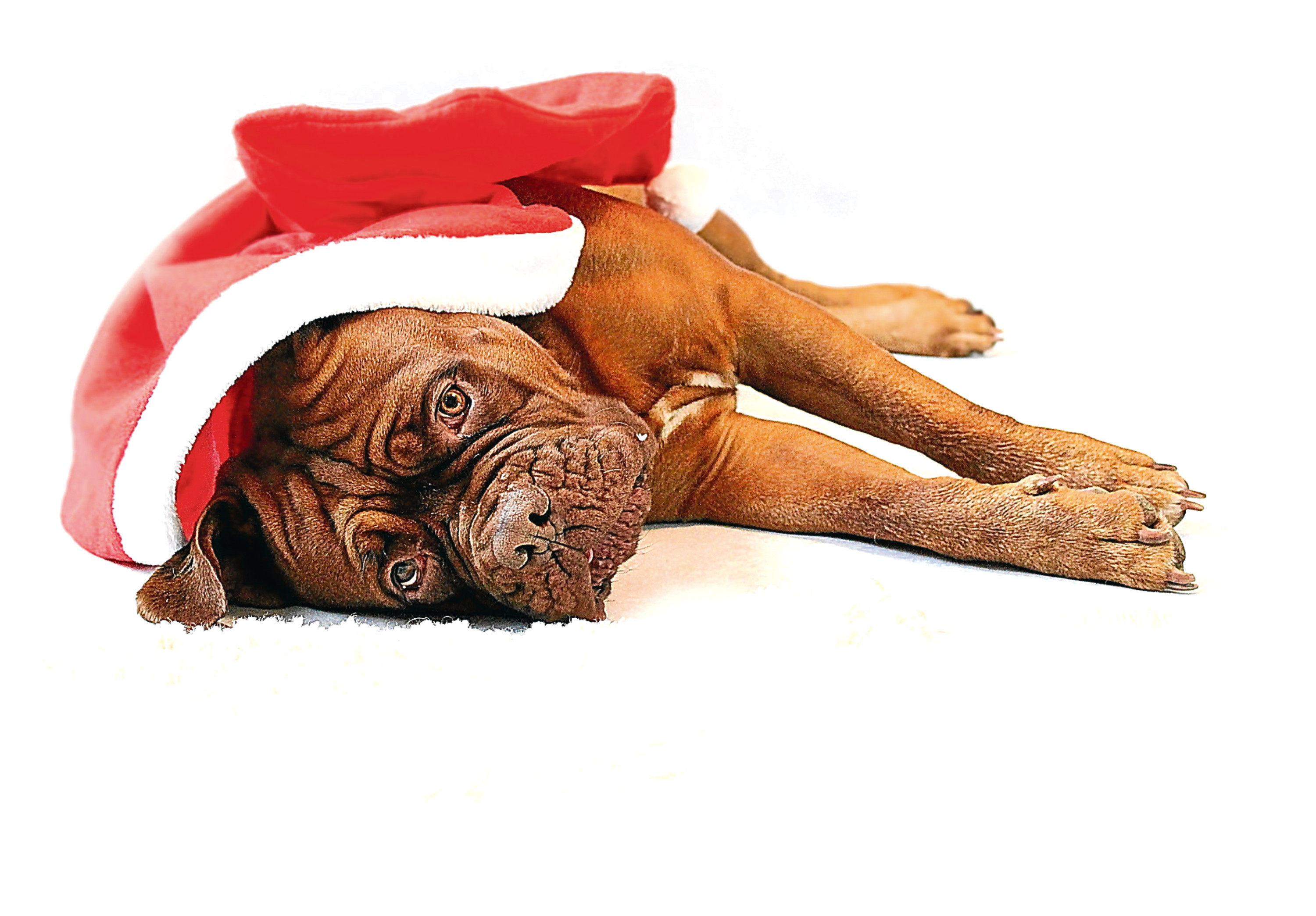
CHRISTMAS can potentially be problematic for pets.
Traditional festive fayre, flora and decorations can all pose a risk to our best friends.
We might be tempted to treat them to a Christmas nibble or two, or feed them from the groaning dinner table — but beware.
Amongst the foodie felons that could lethally harm our canine and cat counterparts are nuts, avocados, corn syrup, crisps and raisins.
Will Bisset, a pet food researcher and expert nutritionist at UK ethical retailer Pets Corner, explains: “It might be tempting to feed pets with human treats, but many of them contain poisonous and life-threatening chemicals that can either seriously harm or kill.
“For example, onion in any form, particularly the powder that is commonly found in most savoury foods including crisps, pizza and many sauces, contains disulphides and thiosulphates that are extremely poisonous to dogs, and even more so for cats, causing anaemia and damaging red blood cells.
“Likewise, toxins found in grapes and raisins, as well as chocolate, can also cause a pet severe damage.
“Artificial sugar substitutes, such as Xylitol, can be really harmful, and corn syrup should be avoided at all costs.”
Nuts are a traditional yuletide treat, but many of them, including almonds, walnuts, hickory nuts, macadamias, pecans and pistachios are toxic to cats and dogs and can cause intestinal obstructions.
And even though apple flesh is a perfectly-safe ingredient often included in many holistic dog foods, the seeds themselves contain a natural chemical that releases cyanide when digested by animals and are potentially lethal.
Food aside, for many animals Christmas can be a source of anxiety and can even present unexpected dangers.
Research has shown that Christmas Eve is 20% busier for emergency referrals to veterinary practices than any other day of the year.
Head of Training at Pets Corner Lucy Ross explains: “Cats and dogs can be very inquisitive and will want to explore new and exciting things.
“The dazzle of Christmas decorations displayed around the house will be attractive to many pets who may be tempted to chew on electric cables attached to decorative lights, so make sure any loose wires are tucked well out of the way.
“Glass tree baubles can cause serious injuries if they shatter, so opt for tree ornaments that won’t break easily, like felt or wood.
“Small or textured decorations may present a choking hazard and some may contain toxins that are dangerous if ingested.
“Make sure all decorations are firmly secured and out of the reach of pets.
“As the temperature drops and the nights close in, make sure your pets are kept warm and given plenty of blankets.
“Invest in a good-quality animal coat that is fitted to your pet’s measurements. This will help to protect your pet from getting too cold whilst outdoors.”
Indoors, too, can be potentially perilous because of the traditional plants and flowers with which we love to decorate our homes.
Merry sprigs of mistletoe, twinkling pine Christmas trees and ruby-red poinsettias fuel that festive feeling, but they’re poisonous to pets.
Poinsettias, for instance, are mildly toxic and can cause vomiting or poorly tummies, and it’s the same with amaryllis and hyacinths.
Holly and Christmas trees are moderately toxic and can cause gastrointestinal upsets such as drooling, vomiting, diarrhoea and abdominal pain, as can mistletoe.
In larger doses, the latter causes abnormal heart rate, collapse, low blood pressure, ataxia (walking as if drunk), seizures and even death.
So be aware for any of these signs and have a pet-safe Christmas.

Enjoy the convenience of having The Sunday Post delivered as a digital ePaper straight to your smartphone, tablet or computer.
Subscribe for only £5.49 a month and enjoy all the benefits of the printed paper as a digital replica.
Subscribe